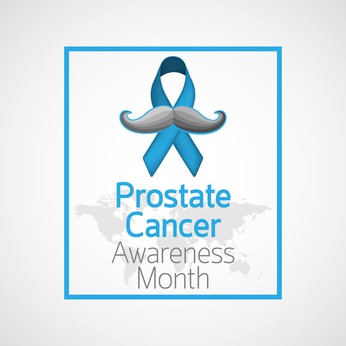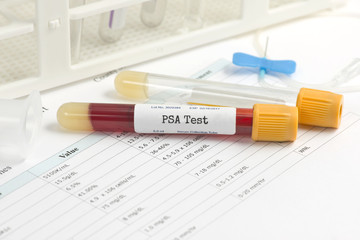WARNING: The following contains some reasonably graphic phrases about secret body parts.

“Movember” is coming up, I’m on a bit of a personal crusade, not for what Movember represents — how could I be? — but their modus operandi. In case you are in the dark about what Movember is, each November men are encouraged to grow moustaches and raise funds to raise awareness about prostate cancer.
Now how could any male — particularly one who has heard the words “you have prostate cancer” — have any objection to Movember? Surely all it’s doing is good?
My personal issue with Movember is that it’s a trendy, fashionable, feel-good thing that achieves absolutely nothing except making a small, elitist group of people feel self-important.
If what I am about to write makes people feel a bit uncomfortable, or embarrassed, I’m sorry, but this comes from the heart — and from deep personal experience.
My experience with prostate cancer got me feeling very angry. Firstly I was angry with my own body for allowing this to happen. Then I was angry with myself for having lived in such abject ignorance. Then I was angry with the medical profession for trying to take the easy options. Then I was angry with the whole damned world for failing to tell the whole damned world everything we need to know about the prostate but are afraid to ask.
My prostate cancer experience begaan one Friday afternoon when, on a routine visit to my doctor following a routine blood test he said — “You’ve got a slight increase in your PSA level, I’m not saying you have prostate cancer, but I’d like another blood test to see.”
I sloughed that off — there were two words that I had never expected I would hear in the same sentence —“you” and “cancer”. I knew instinctively, and arrogantly, that this was a false alarm. The next blood test would show that my PSA level, whatever PSA was, was okay and it had been a false alarm.
But that next blood test showed my PSA level had increased again, slightly, but enough for my doctor to take the next step — he put me on a course of antibiotics as there was the possibility, no probability, that I had a prostate infection.
I remember that period because it was summer and we went camping. I had a reaction to the antibiotics that saw me sensitive to the sun and which made life a misery.
Another blood test and again my PSA level was just a bit too high.
I still wasn’t taking this whole thing seriously. But I was about to get a short, sharp and unpleasant lesson in life.
The doctor said I should have a biopsy and warned me that few men found this the most pleasant experience in their lives. Initially, the worst part was that because there were waiting lists to get it done on the public health service I should have it done privately at a cost of several hundred dollars.
Because there is a risk of infection from the biopsy, I was put on another course of antibiotics.
The biopsy operation itself was mercifully short but one of the most unpleasant and invasive experiences of my life. I was not prepared for it.
The specialist, attended by a nurse, inserts an instrument up your bottom and, at the appropriate place, it pierces the wall of your bowel and takes a tiny sliver out of your prostate gland that, apparently, lives right next door to the bowel.
It’s not painful, but there is the physical position you are in, then there is the discomfort of having a stainless steel device penetrating a very private part of your anatomy and then there is the noise as it takes the sample. The whole thing is like a rattrap going off up your backside.
You are mildly sedated throughout this and after it was over I toddled off and went back to the office.
Because the biopsy is taken in what is described as an “unclean environment” it was necessary to continue with the antibiotics in case of infection.
That was on a Thursday, on Friday the Navigator and I, along with Kate the Editorial border collie, headed for Kennedy Bay on the Coromandel Peninsula for a night in the back of my Nissan Pathfinder on the beach.
I was fine that night but woke on Sunday morning with what felt like slight flu’ symptoms. We had intended having lunch in Coromandel township, but I started feeling unwell quite quickly and decided to head back to Auckland. By the time we arrived I was a cot case, so we delivered me to the local Ascot hospital where, despite my explaining the biopsy procedure, a nurse suggested what I had was a bladder infection. But a doctor took my temperature, listened to my story and phoned the emergency ward at Auckland hospital to get them ready for my arrival. I had septicaemia — blood poisoning.
I spent the next two days and nights in the emergency ward, hooked up to drips and all sorts of electronics. Once I was stabilised they wheeled me upstairs where I stayed for another four days. For the first three or four days, I was delirious. A Chinese doctor who I could barely understand was doing the morning rounds and he proudly announced that they had “the infection under control — and, by the way, your biopsy was positive, you have prostate cancer.”
That was the way that I and the other patients in the ward, learned that I was now one of the growing statistics of prostate cancer patients.
After the doctor had gone, the other patients in the ward all offered me their sympathy. I confess I was shell-shocked and felt incredibly vulnerable.
The first option was private or public? I didn’t have medical insurance and I was already in the public system, so I took public.
 There were two options — surgery, or radiotherapy and the doctors I dealt with suggested surgery as my doctor had read the warning signs early and I was not in an advanced state and removal of the prostate would be the simplest and most effective method of treatment.
There were two options — surgery, or radiotherapy and the doctors I dealt with suggested surgery as my doctor had read the warning signs early and I was not in an advanced state and removal of the prostate would be the simplest and most effective method of treatment.
I was like putty in their hands. I felt powerless and unable to believe the situation I was in.
But then, with encouragement from the Navigator, I decided to take more control of the situation. The first thing I did was to read about the prostate. I suggest that like most people, I didn’t know what the prostate was, or what it did. I wasn’t even sure if women also had a prostate (they don’t).
This is an exclusive male-only device. It’s a small gland that is located up against the bladder and surrounds the urethra— the tube that drains urine out of the bladder.
The purpose of the prostate is to make the seminal fluid on which the tadpoles hitch a ride into the interior.
Okay, that was the first question solved. But what were the side effects of the treatment on offer? More reading and more learning.
Surgery or radiotherapy would definitely mean permanent impotency and I would also be incontinent and have to wear nappies. If I was lucky that may last for six months, but it wasn’t unknown for it to be permanent.
And what was the PSA level that alerted my doctor? It’s a chemical that is produced by your prostate if something is irritating it. That irritation can be riding a pushbike, having sex, an infection — or cancer.
Obviously, I was woefully unprepared and ill-educated for the position I was in. I was still on the radio and asked the audience. The vast majority were as ignorant of the facts as I was.
I was in a state of deep depression. I wasn’t able to make a decision. The Navigator, who believes in alternative things, blamed My diet and my lifestyle and there’s probably a grain or two of truth in that.
I really didn’t know what I was going to do until a friend suggested I see a specialist as there were other options. I took his advice and the specialist said I would be a suitable candidate for something called brachytherapy where they inject tiny radioactive pellets directly into the prostate. It’s not available under the public health system and the cost was $28,000, but it would deal with the cancer without the side effects of impotence or incontinence.
After a lot of soul-searching, this was what we decided on.
The biopsy had given the surgeons an accurate map of my prostate and where the cancer was located so they calculated how many radioactive pellets were needed, ordered them from the laboratory in Boston, USA and, in due course I went to a private clinic where I stayed for 24 hours during which time a specialist injected the pellets with extraordinary precision and accuracy.
Because I was now radioactive, for the first six weeks or so I had to avoid getting too close to babies or pregnant women and the only side effect was that when I went to the USA three weeks later I rang the “he’s carrying a nuclear weapon” screening alarm bells at Los Angeles airport and had to face some questioning by a couple of men with guns in their hands.
 That was four years ago and I have blood tests to check on my PSA level every three months and so far so good. My PSA levels have been negligible.
That was four years ago and I have blood tests to check on my PSA level every three months and so far so good. My PSA levels have been negligible.
There is some low-level awareness among the populace that men of a certain age should have regular checks for prostate cancer and most of us think that means the embarrassment of having to drop your trousers and bend over while the doctor pulls on a rubber glove. But all of the evidence I have read indicates that if the doctor can feel that something is wrong with your prostate, it’s already late. Not too, late, but late. The PSA blood test will indicate there is a reason for concern well before that.
I was lucky in that I had a good doctor who was keeping an eye on my PSA levels without telling me.
So why am I so angry about Movember? Well, I’m not really as angry about Movember as I am about the whole lack of education and proactivity there is regarding prostate cancer. The level of ignorance for such a major killer of men is scandalous.
What’s needed is a serious and sustained education programme that makes men aware of what the ramifications of prostate cancer are and to have PSA level blood tests as a matter of course. Men need the same high profile approach to prostate cancer that women have for breast and cervical cancers. Movember won’t achieve that — it’s simply window dressing. And low-level window dressing at that. We could start by teaching us that women don’t have a prostate gland, only men do. And that it is prostate — not prostrate, which is a form of planking!
Read more of Allan’s blog entries by clicking here.









Join the Discussion
Type out your comment here:
You must be logged in to post a comment.